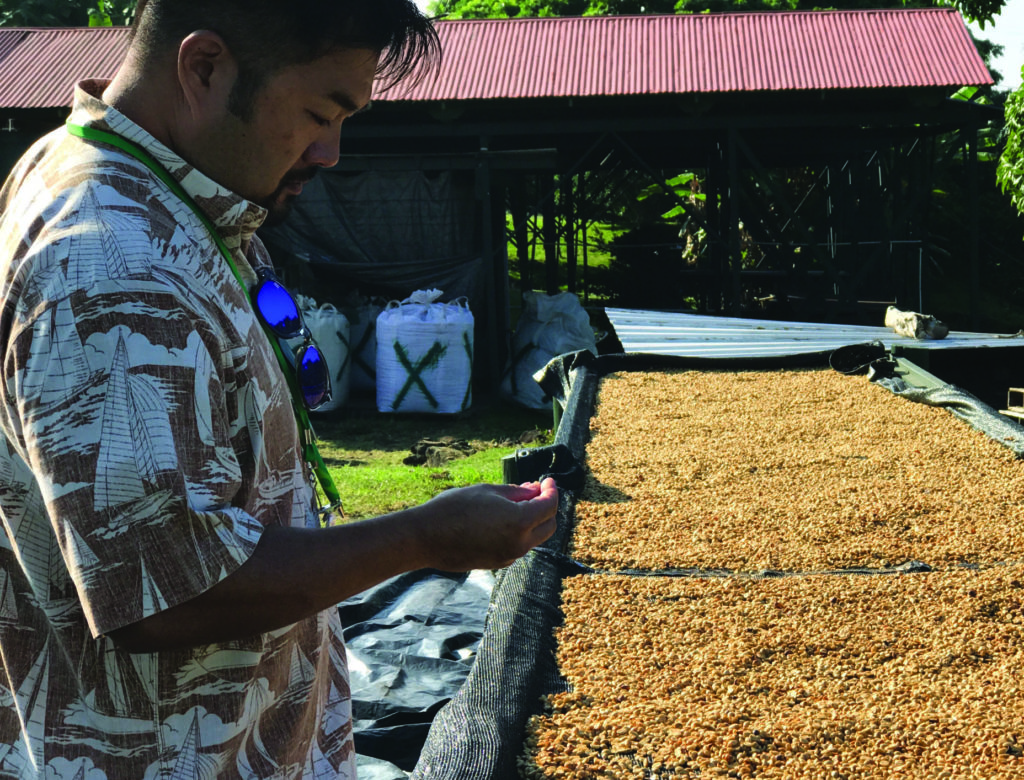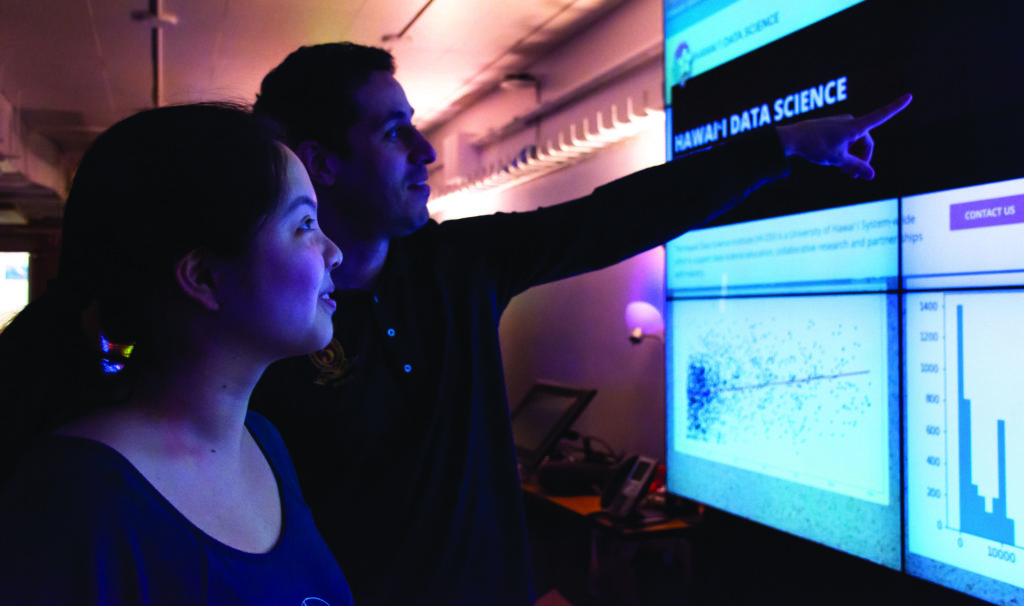Harnessing the Power of Data to Create Real-World Solutions
Data is often times referred to as the new oil. Similar to oil, if left unrefined—data cannot be properly used to its fullest potential. However, when data is broken down and analyzed—the processed information becomes a very powerful and valuable product to those who know how to extract it.
As a result, data science has become an emerging field that calls upon the knowledge of many different disciplines to create new insights from the enormous torrents of data that are collected everyday by scientists, engineers and companies. Responsibly and creatively deployed data science products are creating unprecedented opportunities to derive economic value, improve quality of life, and provide new knowledge important to Hawai‘i and to other communities around the world.
”Unfortunately, the biggest impediment to leveraging the necessary data needed to create efficiencies in academia and the industry in Hawai‘i—is the severe shortage of individuals with expertise in data and computational science,” said University of Hawai‘i (UH) President David Lassner, who previously served as UH’s vice president for information technology and chief information officer. “To help fill this critical void, we established the Hawai‘i Data Science Institute to be the tip of the spear of a system-wide initiative for catalyzing research and training capacity in data science, computation, and visualization.”
The Hawai‘i Data Science Institute (HI-DSI) is led by a trio of experts, including: UH System Director of Cyber-Infrastructure Gwen Jacobs, Professor of Information and Computer Sciences (ICS) and Director of the Laboratory for Advanced Visualization for Applications (LAVA) Jason Leigh, and Assistant Professor of ICS and Research Scientist at the Hawai‘i Institute for Marine Biology Mahdi Belcaid, HI-DSI is quickly becoming a world-class venue for education, training and collaborative research in data and computational sciences.
“The Hawai‘i Data Science Institute capitalizes on UH’s unique position and international excellence in key research domains, such as oceanography, astronomy, biology, agriculture and the earth sciences, to pursue high-impact collaborative projects,” said Jacobs. “These projects are co-developed by HI-DSI’s researchers, graduate and undergraduate fellows who work collaboratively with stakeholders to apply cutting-edge data science techniques to solve real-world problems that benefit Hawai‘i’s economy and its citizens.”

Currently, HI-DSI is working with Smart Yields, a Hawai‘i-based startup which develops real-time monitoring, data analytics and digital agronomy solutions for precision agriculture in small- to medium-sized independent farms. The collaborative effort is to help Smart Yields find optimal ways for deploying sensors to achieve maximal coverage while minimizing cost and effort for crop protection and yield enhancement.
“HI-DSI is a key component to our success in developing new ways to use data effectively so farmers can grow and store food with increased success, safety and efficiency,” said Vincent Kimura, CEO of Smart Yields. “Data is central to our operations, and having HI-DSI as a partner to deploy new technologies in Hawai‘i is invaluable.”
HI-DSI’s Fellows are also creating high velocity learning workshops that enable UH departments and Hawai‘i companies to quickly achieve competency in data science. At First Hawaiian Bank, an HS-DSI Fellow led a project to develop an effective, accessible and scalable dashboard infrastructure for the timely analysis of residential real estate data. The project required the development of a visualization platform to provide a summary bird’s eye view of the department’s performances, including volume and timeliness of mortgage loan processing and branch activity.
“Great data science can only happen with great data infrastructure,” added Leigh. ”The Hawai‘i Data Science Institute provides world-class networking, and computing infrastructure such as: a 100 Gigabit high speed network connected to the U.S. Mainland and Australia, a High Performance Computing Cluster (HPCC) and a fleet of 17 CyberCANOEs (Cyber-enabled Collaboration Analysis Navigation and Observation Environments – state of the art collaborative data visualization systems) that connect the UH System campuses with the rest of world.” For more information about the Hawai‘i Data Science Institute, visit datascience.hawaii.edu.

